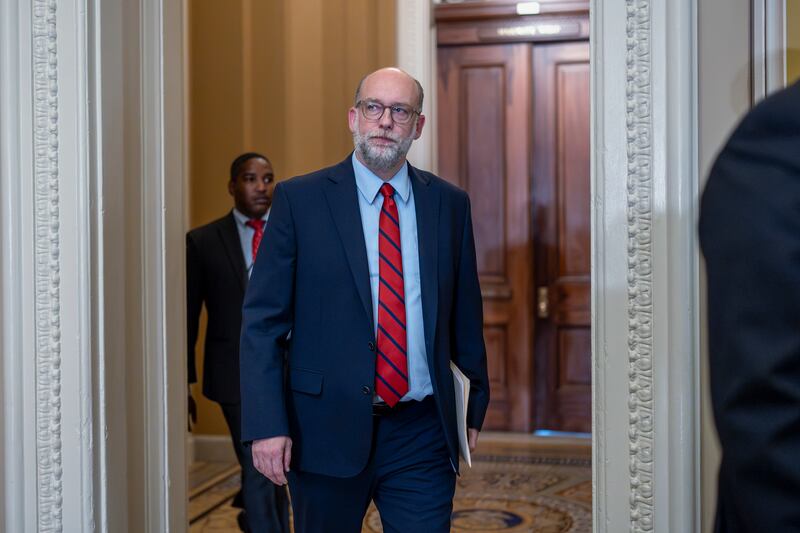- Trump administration releases $1.3 billion in previously withheld grant money for after-school and summer programs.
- Utah advocates of such programs for local youth applaud bipartisan actions that prompted the funding actions.
- Thousands of Utah children participate in after-school and summer programs that rely on federal funding.
After-school and summer program advocates in Utah are exhaling a bit following the Trump administration’s recent decision to release $1.3 billion in previously withheld grant money for programs that benefit many working families.
“In a time of increasing political division, the Utah Afterschool Network applauds the bipartisan action that led to the release of 21st Century Community Learning Center (21st CCLC) grant funds,” the network noted in a news release.
“These funds were part of the $6.9 million in education dollars delayed by the Office of Management and Budget, which have now been reinstated following widespread public outcry and advocacy.”
On July 1, the Education Department withheld more than $6 billion in federal grants for after-school summer programs, adult literacy and English language instruction as part of a review to ensure spending aligned with the White House’s priorities.
Last week, 10 Republican senators sent a letter imploring the Trump administration to allow frozen education money to be sent to states, The Associated Press reported. The senators said the withheld money supported programs that had longstanding bipartisan support and were critical to local communities.
“We share your concern about taxpayer money going to fund radical left-wing programs,” the senators wrote to the Office of Management and Budget. “However, we do not believe that is happening with these funds.”

The administration’s review of the 21st Century Community Learning Centers, which support after-school and summer programming, has been completed — and that funding will reportedly be released to states, The Associated Press reported.
The rest of the withheld grants, close to $5 billion, continues to be reviewed for bias by the Office of Management and Budget.
“In Utah, the restoration of these funds means that over 10,000 children and their families will not lose access to afterschool programs as the new school year begins,” the Utah Afterschool Network reported.
“Research consistently shows that regular participation in high-quality out-of-school time programming improves school attendance, academic performance, and long-term success.”
Advocates: After-school/summer programs ‘give parents a leg up’
Thousands of Utah children participate in after-school and summer programs that receive federal funding through 21st CCLC.
Approximately 40% of all public funding for the state’s afterschool and summer programs comes from 21st CCLC, according to the nonprofit Utah Afterschool Network.
Network Executive Director Ben Trentelman told the Deseret News recently that approximately 30,000 Utah kids are being served in afterschool programs across the state.
“Of those kids, about 10,000 of them were kids that attended programs that are funded by the 21st Century Community Learning Center grant,” said Trentelman.
Utah’s working families, added Trentelman, depend on well-staffed, efficiently operated summer and afterschool youth programs.
“Right now, our state is in a child care crisis,” he said, adding that some childcare programs have had to shut down in recent years due to funding decreases — even while family expenses are on the rise.
“These programs are in high demand because they’re affordable and because they’re available during the hours between 3 p.m. and 6 p.m. when kids tend to be engaged in the riskiest behaviors,” said Trentelman.
After-school and summer programs, he added, “give parents a leg up to make sure that when they get home at the end of the day their kids have finished their homework. It helps to add to quality time for families.”
Trentelman is quick to note that the youth programs that would be impacted by a loss of 21st Century Community Learning Center funds do much more than simply keep kids out of trouble.
“They’re structured programs that offer activities that help kids apply skills that they’re learning in school,” he said. “There are programs that are running STEM activities or computer science activities — and they do a lot around workforce development to help to make sure that kids are getting opportunities and exposure to our ever-changing work landscape.
“These are programs that are absolutely driven by economic development and helping to make sure that we have a robust workforce.”
21st CCLC’s future remains uncertain
Despite the announced federal money release, schools and nonprofits in parts of the country have already been disrupted by weeks of uncertainty. Some programs have made plans to close, and others have fallen behind on hiring and contracting for the fall, The Associated Press reported.
“While we are thrilled the funds will be made available and thank the bipartisan lawmakers and the state attorneys general who fought for their release, the administration’s inexplicable delay in disbursing them caused massive chaos and harm, with summer learning programs abruptly shutting down and a large number of after-school programs cancelling plans to open in the fall,” wrote Jodi Grant, executive director of the Afterschool Alliance.
“Those programs have now fallen behind on hiring, outreach, contracting and other work needed to fulfill their essential mission to keep students safe, inspire them to learn, and give working parents peace of mind that their kids will be safe and supervised when schools are out.”
Grant noted that the Afterschool Alliance remains “deeply concerned” that the Trump administration is proposing no money for 21st CCLC funds next year — instead collapsing it into a “K-12 Simplified Fund Plan.”
“If Congress agrees to that, we will see more children and youth unsupervised and at risk, more academic failures, more hungry kids, more chronic absenteeism, higher dropout rates, more parents forced out of their jobs and a less STEM-ready and successful workforce as our childcare crisis worsens dramatically,” wrote Grant.

